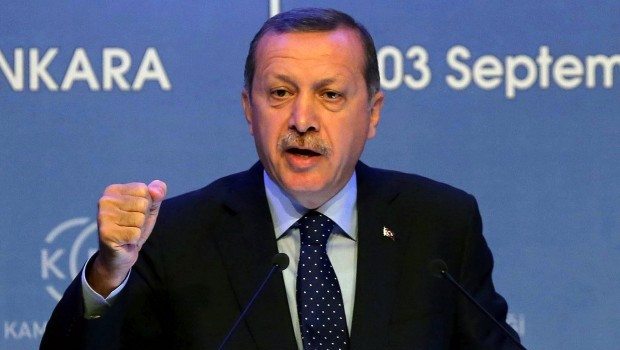Consistency is the theme of Turkey’s not-so-new government. Turkish President-elect Recep Tayyip Erdogan confirmed a year’s worth of speculation Thursday when he announced that Foreign Minister Ahmet Davutoglu would succeed him as prime minister and chairman of the ruling Justice and Development Party.
The decision was fairly straightforward. Davutoglu is known to be fiercely loyal to Erdogan and is therefore unlikely to stand in the way of his agenda, even though Davutoglu would technically be sitting in the more powerful political post. Davutoglu lacks Erdogan’s charisma and may have trouble connecting with the broader Turkish public, raising concerns that he won’t be able to lead the party to a strong enough victory in 2015 parliamentary elections. But Erdogan is also not about to let such issues undermine his perceived mandate to continue leading Turkey with the same intensity he showed over the past 11 years as prime minister.
Cabinet appointments due in early September will probably also reflect this business-as-usual strategy, with Turkey’s national intelligence chief, Hakan Fidan, taking Davutoglu’s place as foreign minister. Fidan has been instrumental in the peace process with the Kurdistan Workers’ Party and will continue to drive that policy forward as the Justice and Development Party (also known by its Turkish abbreviation, AKP) vies for Kurdish votes. Much to the relief of investors eyeing Turkey after a wobbly year among emerging markets, rumors from the Justice and Development Party suggest that Deputy Prime Minister Ali Babacan and Finance Minister Mehmet Simsek will likely maintain influence over the country’s economic policy in the new government.
What is a Geopolitical Diary? George Friedman Explains.
The government taking shape in Turkey shows that Erdogan is not in the mood for experimental politics. Though so far he has the military tamed, he is still in the process of purging his erstwhile allies in the Gulen movement. Perhaps more disconcerting to Erdogan is that he is relying on the weaknesses and inherent divisions within his opposition to sustain his tenure as opposed to being able to rely on his own popularity. With just over half the electorate behind him, Erdogan is looking down the horizon at a number of issues that could cost him.
First, Turkey’s largest export market, Europe, is still looking quite sickly. Meanwhile, Iraq, once a significant and growing export market for Turkey, is again finding itself ravaged by war. Turkey is trying to remain unaligned in the standoff between Russia and the West, remaining willfully blind to sanctions and ready to export to all. For its part, Russia is more interested in punishing Europe and keeping Ankara close, and so it is playing along. But Moscow cannot trust that Ankara will be as cooperative in the future, especially as the two countries start to push up against each other in the Caucasus.
Those foreign policy complications start multiplying the farther south Turkey looks. With a jihadist threat encroaching on what was once considered a haven in Iraqi Kurdistan, Turkey’s energy gambit in northern Iraq is raising lots of questions. How does Turkey make peace with the Kurdistan Workers’ Party and draw the line at Kurdish autonomy within its own borders when, just across the border, Iraqi Kurdistan is trying to use Turkey’s backing of unilateral energy exports to declare independence? How does Turkey reinforce peshmerga forces in northern Iraq against jihadists when those jihadists have been quite helpful in containing Kurdish separatists in Syria? And if Iran’s military is creeping too close for Turkey’s comfort in Iraqi Kurdistan, what would a mobilization of Turkish forces in northern Iraq do to Ankara’s relationship with Arbil, not to mention its own Kurdish peace process? How can Turkey negotiate with Iran over increased energy exports when it is directly undermining Iran’s Shiite allies in Baghdad over Kurdish energy exports?
Regardless of who sits

